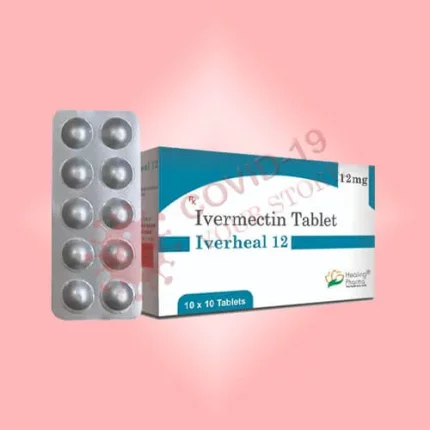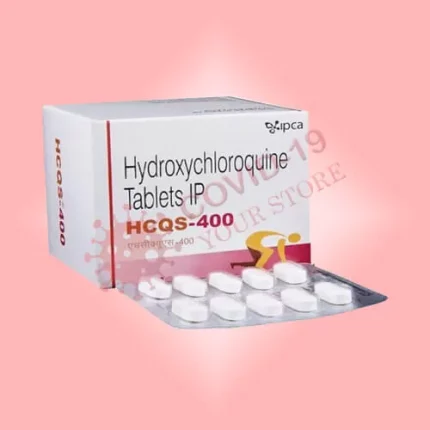What is Hydroxychloroquine 200 mg?
Hydroxychloroquine 200 mg is a medication primarily used to treat malaria, rheumatoid arthritis, and lupus. It belongs to a class of drugs known as antimalarials. Hydroxychloroquine works by interfering with the growth of parasites in the red blood cells, making it effective in treating malaria. In autoimmune conditions like lupus and rheumatoid arthritis, it helps reduce inflammation and modify the immune system’s response.
Hydroxychloroquine is available in tablet form, and the 200 mg dosage is commonly prescribed for adults. It is often prescribed for chronic conditions, and the duration of treatment depends on the specific disease being treated.
How Does Hydroxychloroquine 200 mg Work?
Hydroxychloroquine works through two primary mechanisms, depending on the condition it is treating:
- For Malaria: Hydroxychloroquine interferes with the growth of the Plasmodium parasite, which causes malaria. The drug accumulates in the parasite’s digestive vacuoles and disrupts the conversion of hemoglobin into amino acids, preventing the parasite from thriving. This results in the death of the parasite.
- For Autoimmune Diseases: In diseases like lupus and rheumatoid arthritis, hydroxychloroquine modulates the immune system. It inhibits the activity of certain immune cells and reduces the production of pro-inflammatory cytokines. This leads to a reduction in inflammation and symptoms associated with autoimmune disorders.
Benefits of Hydroxychloroquine 200 mg
- Effective Malaria Treatment: Hydroxychloroquine 200 mg is highly effective in the treatment and prevention of malaria, especially in regions where Plasmodium falciparum is resistant to other antimalarial medications.
- Reduces Inflammation: In autoimmune diseases like lupus and rheumatoid arthritis, hydroxychloroquine helps reduce joint pain, swelling, and inflammation. It can also decrease the frequency of lupus flares and improve skin lesions associated with the disease.
- Prevents Disease Progression: For patients with rheumatoid arthritis, hydroxychloroquine can help slow the progression of the disease and prevent joint damage when taken long-term.
- Fewer Side Effects: Hydroxychloroquine is generally well-tolerated, especially compared to other medications used for autoimmune diseases and malaria. It has fewer side effects and is less likely to cause gastrointestinal distress or liver damage.
- Alternative for Mild Conditions: Hydroxychloroquine is often used as a first-line treatment for mild cases of lupus or rheumatoid arthritis, as it is less aggressive than other immunosuppressive drugs.
How to Take Hydroxychloroquine 200 mg
Hydroxychloroquine 200 mg should be taken exactly as prescribed by your healthcare provider. The dosage and frequency of administration will vary depending on the condition being treated.
- For Malaria: The typical dosage for treating malaria is 400 mg once a week for prevention or 800 mg initially, followed by 400 mg after 6-8 hours, and 400 mg on the following day for treatment. Always follow your doctor’s instructions for malaria treatment.
- For Lupus and Rheumatoid Arthritis: The usual dosage for lupus or rheumatoid arthritis is 200 mg to 400 mg daily, depending on the severity of the condition. It is typically taken in one or two doses per day with food to reduce stomach upset.
- Administration: Hydroxychloroquine 200 mg tablets should be swallowed whole with a full glass of water. It is important to take the medication consistently and at the same time each day to ensure its effectiveness.
- Consult Your Doctor: Always follow your doctor’s advice on how to take hydroxychloroquine. Never adjust your dose or stop taking it without consulting your healthcare provider, as this can affect the outcome of your treatment.
Who Makes Hydroxychloroquine 200 mg?
Hydroxychloroquine 200 mg is manufactured by several pharmaceutical companies, including Sanofi, Mylan, and Sandoz. These companies provide the drug under various brand names, such as Plaquenil (Sanofi) and Quineprox (Mylan). The drug is available in both brand-name and generic forms, with generic versions offering a more affordable option for many patients.
Is Hydroxychloroquine 200 mg Safe for Humans?
Hydroxychloroquine 200 mg is generally safe for most individuals when used as prescribed by a healthcare provider. However, as with any medication, there are certain risks and precautions to be aware of:
- Pregnancy and Breastfeeding: Hydroxychloroquine is considered safe during pregnancy when used as prescribed, especially for the treatment of lupus or malaria. However, it should only be used under the guidance of a healthcare provider. It is also excreted in breast milk, so consult your doctor if you are breastfeeding.
- Liver and Kidney Function: Hydroxychloroquine is metabolized by the liver and excreted by the kidneys. Individuals with liver or kidney disease may require a lower dose or additional monitoring.
- Eye Health: Long-term use of hydroxychloroquine (especially at higher doses) can cause retinal damage and lead to vision problems. Regular eye exams are recommended for individuals on long-term treatment.
Side Effects of Hydroxychloroquine 200 mg
Hydroxychloroquine is generally well-tolerated, but it can cause side effects in some individuals. Common side effects include:
- Nausea
- Stomach cramps
- Headache
- Dizziness
- Skin rashes
Serious side effects are rare but may include:
- Vision changes: Long-term use can lead to retinal damage or other eye issues.
- Heart problems: Hydroxychloroquine can cause QT interval prolongation, which can lead to irregular heartbeats.
- Muscle weakness: Some individuals may experience muscle weakness or pain, especially at higher doses.
- Severe allergic reactions: Symptoms of an allergic reaction include rash, itching, swelling, or difficulty breathing.
If you experience any of these side effects, contact your healthcare provider immediately.
Disclaimer
This content is for informational purposes only and should not be considered medical advice. Always consult with your healthcare provider before starting any new medication, including Hydroxychloroquine 200 mg. The information provided here is not a substitute for professional medical guidance, diagnosis, or treatment. Use Hydroxychloroquine only under the supervision of a healthcare provider to ensure safety and effectiveness.







